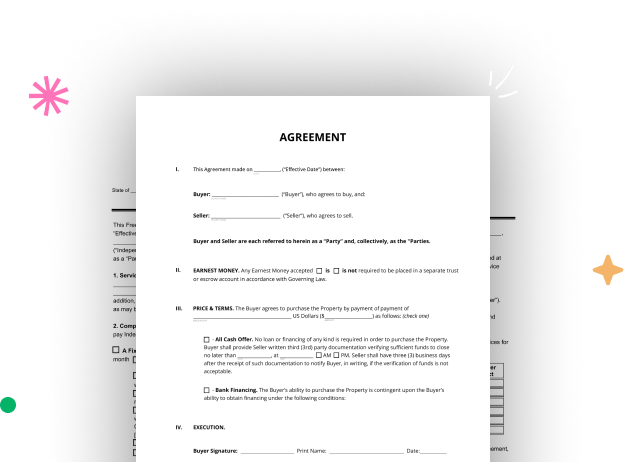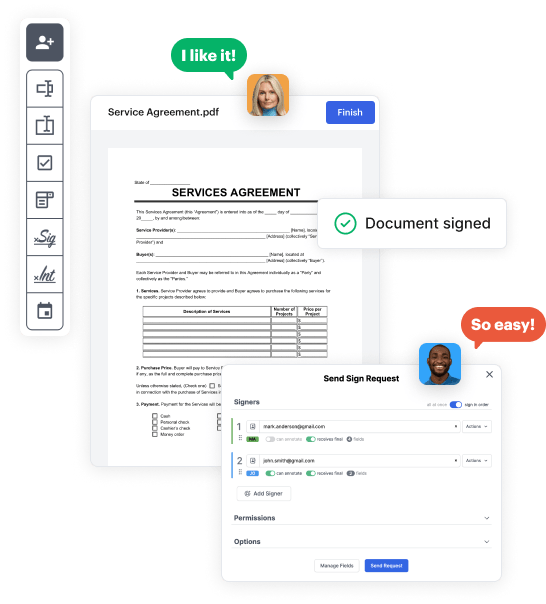

Start by creating a free DocHub account using any offered sign-up method. Simply log in if you already have one.
Try out the whole set of DocHub's pro features by registering for a free 30-day trial of the Pro plan and proceed to build your Vermont Landlord Tenant Law.
In your dashboard, click the New Document button > scroll down and hit Create Blank Document. You will be taken to the editor.
Use the Page Controls icon marked by the arrow to toggle between two page views and layouts for more flexibility.
Navigate through the top toolbar to add document fields. Insert and configure text boxes, the signature block (if applicable), add photos, and other elements.
Organize the fields you incorporated per your desired layout. Adjust each field's size, font, and alignment to make sure the form is user-friendly and polished.
Save the finalized copy in DocHub or in platforms like Google Drive or Dropbox, or design a new Vermont Landlord Tenant Law. Send out your form via email or use a public link to engage with more people.